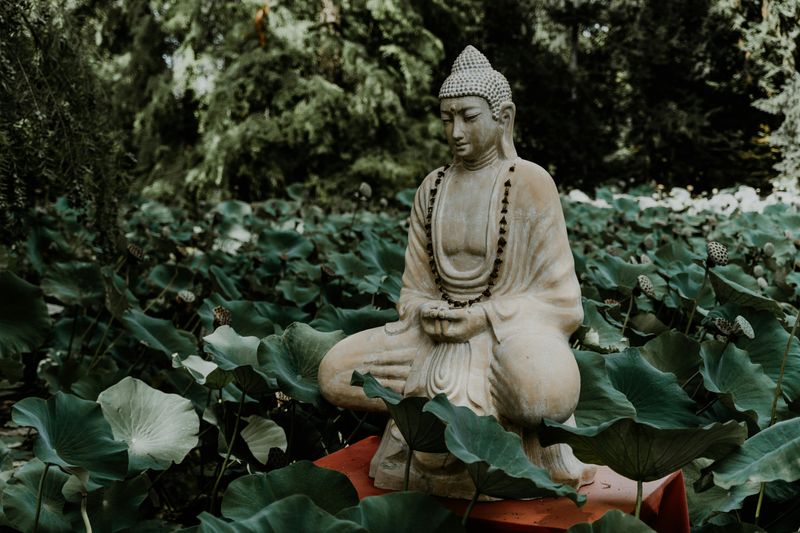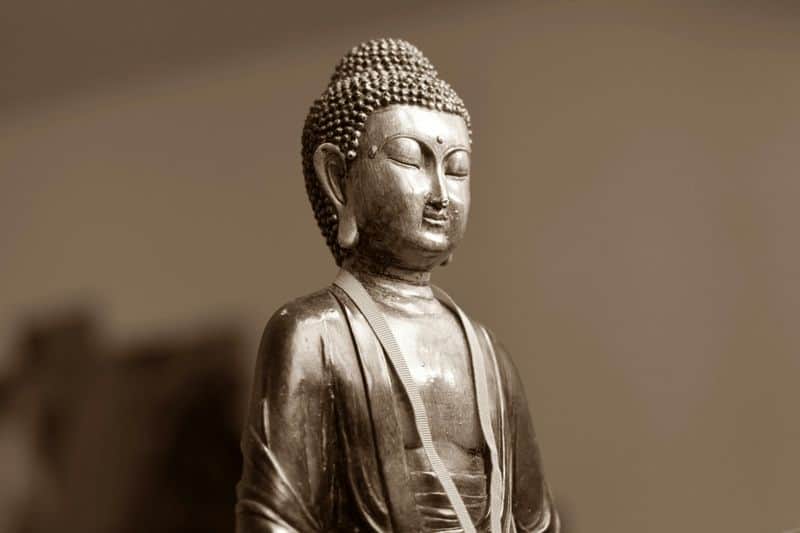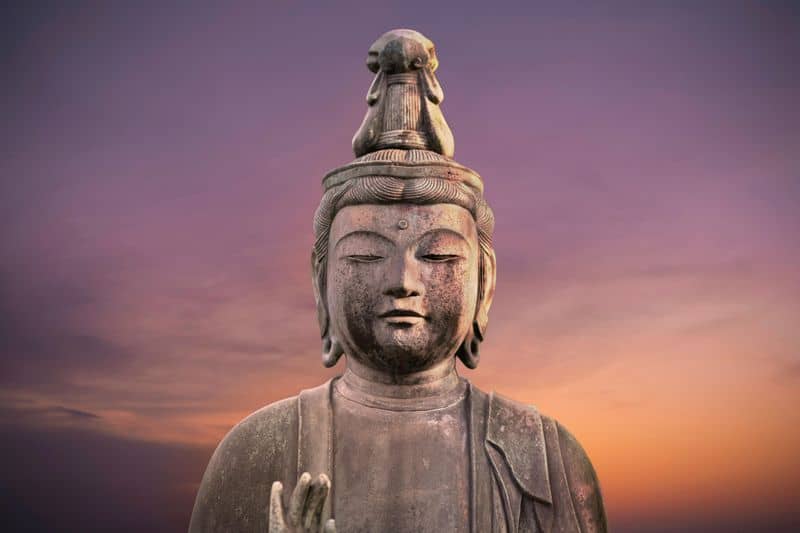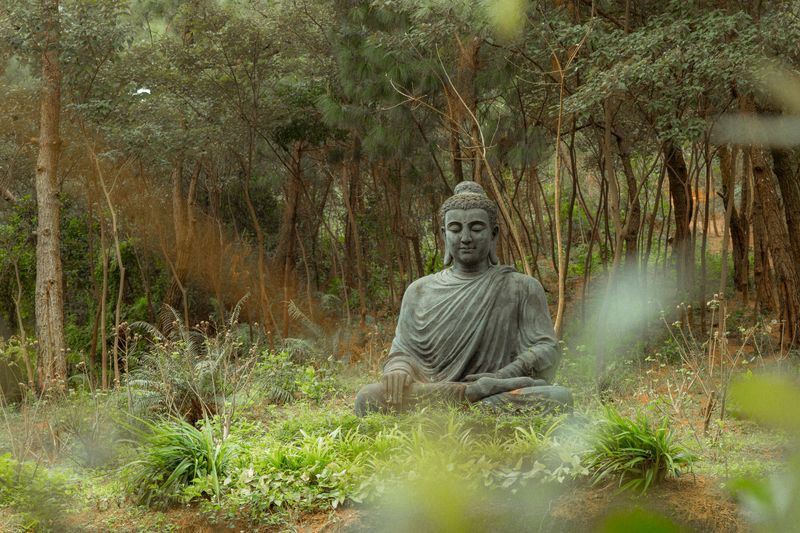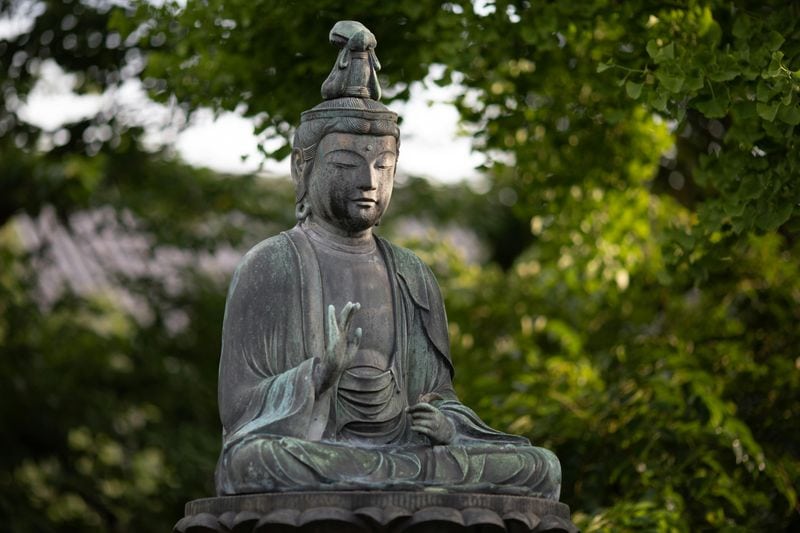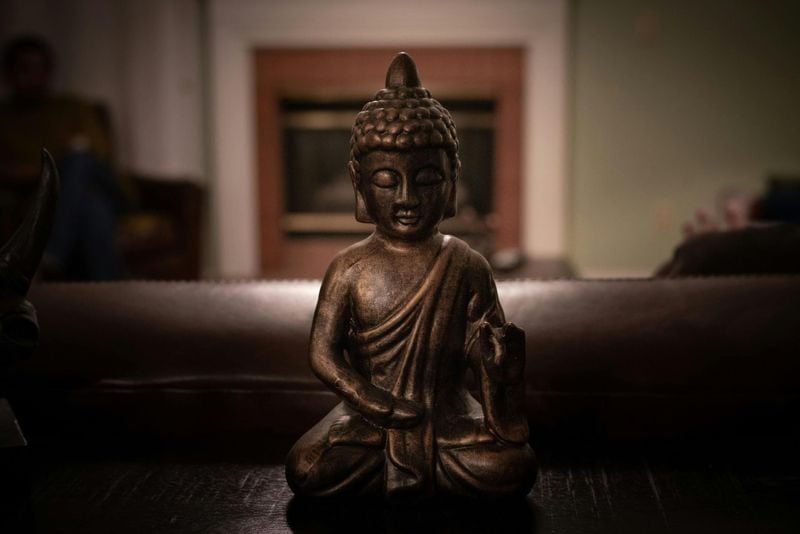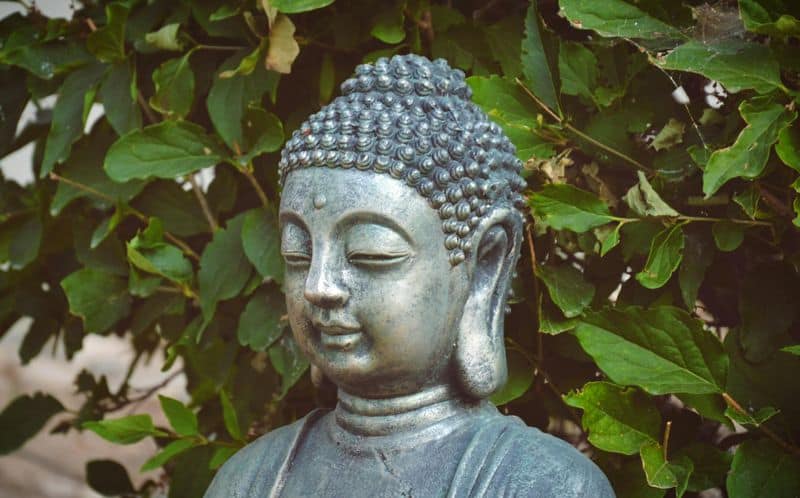Buddha’s teachings have guided millions toward inner peace and enlightenment for over 2,500 years. His simple yet profound wisdom offers practical solutions to life’s biggest challenges.
Whether you’re facing stress, seeking purpose, or simply trying to live more mindfully, these ancient lessons remain surprisingly relevant in our modern world.
1. Practice Mindfulness Daily
Mindfulness isn’t just a buzzword—it’s the cornerstone of Buddha’s teachings. By focusing completely on the present moment, you free yourself from regrets about the past and worries about the future.
When eating, just eat. When walking, just walk. This simple practice transforms ordinary activities into opportunities for peace. Many people find that even five minutes of mindful breathing can dramatically reduce stress levels.
The beauty of mindfulness is that it requires no special equipment—just your attention to whatever you’re experiencing right now.
2. Embrace Life’s Impermanence
Nothing lasts forever—not the good times, not the bad times. Buddha taught that accepting this fundamental truth liberates us from unnecessary suffering. When we stop fighting against change, we discover a profound sense of peace.
Remember how upset you were about something that happened five years ago? Most likely, it doesn’t bother you anymore. The same will be true of today’s troubles.
Kids grow up, seasons change, and feelings come and go. By recognizing this natural flow instead of resisting it, you can ride life’s waves with greater ease.
3. Show Compassion to All Beings
“Hatred never ceases by hatred, but by love alone is healed.” These words from Buddha remind us that compassion isn’t just nice—it’s necessary for our own happiness. When we extend kindness to others, we create ripples that return to us.
A simple smile to a stranger or helping someone carry groceries might seem small, but these acts change both the giver and receiver. Even showing compassion to people who frustrate you transforms difficult relationships.
Start by practicing self-compassion when you make mistakes, then gradually expand that kindness outward to all living creatures.
4. Follow the Middle Path
After trying both extreme luxury and harsh self-denial, Buddha discovered that balance is the key to happiness. Too much of anything—even good things—eventually causes problems.
Think about eating cake. One slice? Delicious! Ten slices? Stomachache! This middle way applies to everything from work and rest to discipline and freedom. Finding your personal balance point brings harmony to life.
When facing choices, ask yourself: “Is this too much, too little, or just right?” This simple question, inspired by Buddha’s middle path, can guide you toward wiser decisions in almost any situation.
5. Understand the Nature of Suffering
Buddha didn’t just talk about suffering—he offered a practical roadmap for overcoming it. The first noble truth acknowledges that pain is unavoidable, but suffering (our reaction to pain) is optional.
When you stub your toe, the initial pain is automatic. But the angry thoughts that follow (“Why is this chair here?!”) create additional suffering. By recognizing this pattern, you gain power over your responses.
Next time something unpleasant happens, try observing your automatic reactions without judgment. This small space between stimulus and response is where your freedom begins.
6. Let Go of Attachments
Holding on too tightly causes pain—whether it’s to possessions, relationships, or even ideas about how life should be. Buddha taught that our attachments and cravings are the root of suffering.
Picture a child clutching a handful of candy through a narrow jar opening. The only way to free the hand is to release the candy. Similarly, we often remain stuck because we refuse to let go of what we think we need.
Try this experiment: identify something you’re clinging to, and imagine releasing it. Notice how this mental letting-go creates an immediate sense of spaciousness and freedom.
7. Cultivate Inner Peace Through Meditation
“Peace comes from within. Do not seek it without.” These words highlight Buddha’s emphasis on meditation as the path to lasting tranquility. Unlike temporary pleasures, inner peace becomes a portable sanctuary you carry everywhere.
Even beginners notice benefits from short meditation sessions. Your racing thoughts naturally slow down when you gently return attention to your breath again and again. This mental training develops focus that extends beyond meditation into daily life.
Many people find that starting with just five minutes each morning gradually transforms their entire day. The calm you cultivate becomes a foundation for clearer thinking and wiser choices.
8. Find Purpose Through Right Action
Buddha believed that meaningful living comes through alignment between our values and actions. When what we do matches what we believe, we experience a deep sense of purpose and integrity.
Small, consistent actions often create more meaning than grand gestures. Helping an elderly neighbor weekly might bring more fulfillment than a once-a-year volunteer project. The key is intentionality—choosing actions that reflect your core values.
Ask yourself: “Does this choice move me toward or away from the person I want to be?” This simple question, rooted in Buddha’s teachings on right action, can guide everyday decisions toward a more purposeful life.
9. Speak with Truth and Kindness
Buddha taught that words carry tremendous power to heal or harm. Right speech means asking three questions before speaking: Is it true? Is it necessary? Is it kind?
Imagine a world where everyone followed this simple practice. Gossip, harsh criticism, and pointless arguments would vanish overnight! Even when difficult conversations are necessary, they can be approached with both honesty and compassion.
Many people find that pausing before responding in heated moments creates space for wiser communication. This brief moment of reflection often prevents words we might later regret.
10. Recognize Our Interconnection
Long before modern science confirmed our interdependence, Buddha taught that separation is an illusion. Every action creates ripples affecting countless others—a profound responsibility and opportunity.
Consider your morning coffee. From farmers who grew the beans to truck drivers who transported them, dozens of people contributed to that single cup. This web of connection extends to all aspects of life.
Try this awareness practice: for one day, notice how many people’s efforts support your daily activities. This simple shift in perspective often sparks spontaneous gratitude and a natural desire to contribute positively to our shared world.


